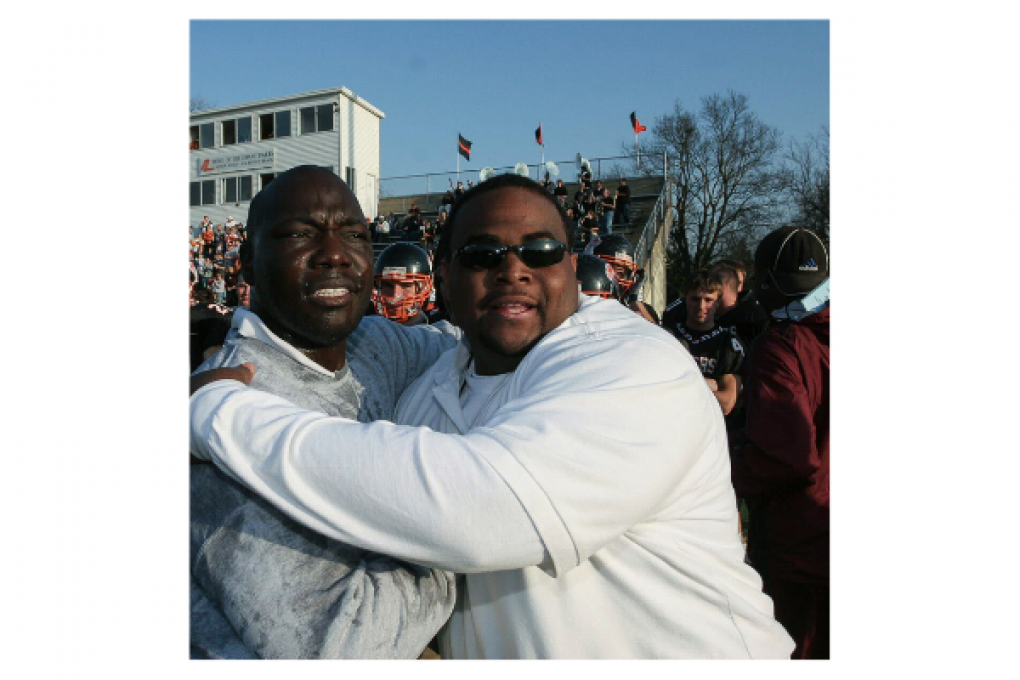
Drive an hour in any direction from Baton Rouge, Louisiana, and you’ll experience a new culture.
The city and the entire state are flush with unique accents, music and food.
As a college football coach, Baton Rouge native Brad Davis has experienced many a culture in his career. His Wikipedia page reads like new lyrics for Johnny Cash’s “I’ve Been Everywhere.”
He’s coached at Texas A&M, North Carolina, Portland State, James Madison, East Carolina, North Texas, Florida, Missouri, Arkansas and LSU.
He’s well-versed in moving and adapting to a new city. That wasn’t the case for his first college coaching gig.
Wayne, Nebraska, is home to an annual Chicken Show and Wayne State College – and in 2005, Davis for nearly a month.
He left his hometown and a high school teaching and coaching job for a restricted earnings graduate assistant position at Wayne State College.
He lived a 12-minute drive away in Wakefield, Nebraska, and earned $4,000 a year. And nope, there’s no zero missing.
“If you can imagine the culture shock from moving from Baton Rouge to Wakefield, Nebraska, it was just probably one of the most, at that time, difficult things that I had done,” Davis said. “But also, later in life, probably one of the most rewarding.”
It was Davis’ first gig on a 17-years-and-counting college football coaching career. He played guard at the University of Oklahoma before a season-ending injury squashed any professional plans. He pivoted to coaching and hasn’t looked back.
He’s now in his second season at LSU as an offensive line coach and served as interim head coach for the team’s bowl game in January.
The road back home to Baton Rouge also included a stint at one Doane University (then, Doane College). He served as offensive line coach and run game coordinator for the 2005 season.
While the salary at Wayne State was less than ideal, it forced Davis to work at football camps to earn extra income. It was after a University of Nebraska-Lincoln camp that a coach there recommended Davis to former Husker quarterback and newly named head football coach at Doane, Tommie Frazier.
With little knowledge of Crete or Doane, but some of Frazier, Davis accepted the offer to serve as offensive line coach and run game coordinator.
“What an unbelievable experience for me to cut my teeth in college football,” Davis said. “It was my first – what I consider to be – real college football job.”
The city and university were tight-knit environments reminiscent of his hometown. Where football is king and friendliness is omnipresent.
“I think that there’s a lot of people [who] probably don’t understand that some of the best things in life can kind of come sometimes in small packages,” Davis said. “And Crete for me is small-town America if you will. [...] a place with a ton of pride, a place that’s super hospitable and makes people feel welcome.”
As important as football is to Davis, it’s the people in the towns and the players on the teams who impacted him along the way and influenced him as a human and a coach.
Because football is just a game – albeit a very important one as Davis relishes in the fact he gets paid to coach it. But he views players as students and his role as their mentor.
His parents, specifically his mom, heavily influenced his ability to view any experience as an opportunity to grow and use his given talents – of which he also credits his mom for.
At 70 years of age, she works with children with special needs. His sister also works in education.
“Coaching is teaching,” Davis said. “They’re one and the same.”
A lesson plan equates to a game plan. Both require creating strategies that solve for an objective. Then communicating those plans to students and players in a way they’ll understand and can execute. And every student learns differently.
Failing to look at his Doane athletes in this way is one of Davis’ biggest regrets, and the job he wishes he could go back and redo.
“I've learned to now curtail my coaching to the player,” Davis said. “You have to be a different coach for each kid, if that makes sense. [...] At that time, I don't think that I had, you know, by any means grasped those concepts. And I wish I could go back now and coach those same players with the lessons that I’ve obtained now in my travels.”
Almost any answer Davis gives pertaining to football and coaching will circle back to people and how he can serve them better. Not wins or losses. Not X’s or O’s.
Even recently, as Davis made history when he was interim coach for LSU’s bowl game on January 4. He became the fourth Louisiana native, first from Baton Rouge and first Black head football coach.
He knows the impact it had on his career, his self and history for LSU, but he viewed the opportunity as a chance to serve his players and the university.
Did he also learn that he was capable of head coaching? Yes. The long-time offensive line coach is entirely happy in his role, though.
If the opportunity to serve as head coach came up, sure, he’d take it if it was the right fit.
“What are my goals today? I want to be the best offensive line coach in the country,” Davis said.
There’s no other agenda, no plans other than to use his talents and the opportunity in front of him to serve those around him.
Even looking back to his first break on the college football coaching scene.
“Since I've left Doane, there hasn't been a place or a school that I've worked at that the students, the administration, the professors, the faculty have been as connected,” Davis said.
“I’m grateful to have experienced it – I’m a better person because I’ve experienced it.”

